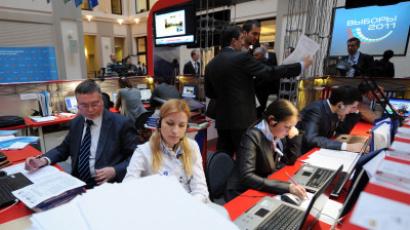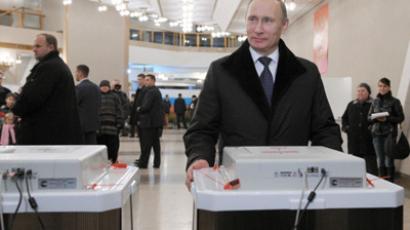‘Election organization absolutely excellent’
The organization of the election has been “absolutely excellent” and the polling station workers “extremely competent.” That is how election observer John Laughland commented on the process in Penza Region, some 600 km south-east of Moscow.
Laughland, who is the director of studies at the Institute for Democracy and Cooperation, also noted that there had been no violations, and estimated voter turn-out to have been in the region of 40-50 per cent.Weighing the pros and cons of the electoral system, he said that although he was a supporter of the majority system, he saw some benefits in Russia’s fully proportional system. One of the advantages was that “all the votes, as it were, count in the sense that with a purely proportional system you can vote for a party and, provided it gets more than 7%, the representation it has in the lower house will correspond to the national percentage of votes cast.” The 7% barrier, a frequent target of criticism from many political analysts who believe the threshold bars many opposition parties from getting seats in parliament, is in his view a positive element of the system. “All states with proportional systems…they very typically have thresholds” he noted. “And the purpose of these thresholds is to prevent the political system from being hijacked by tiny parties. That’s the problem in Israel where, as everybody knows, very small parties, usually extremist parties, can become powerbrokers in the national coalition. And that’s generally considered to be undesirable.”
Meanwhile, Peter Lavelle, the host of RT`s political program Crosstalk, hopes now that a party can gain 5 to 7 per cent of the vote – which is lower than the threshold – and still get 1 or 2 seats in parliament, it will provide a better balance in the Duma.“The more parties the better. Unlike a decade ago when they had too many parties, now they have too few, so hopefully they will balance out in the next parliamentary election cycle,” Lavelle said.














